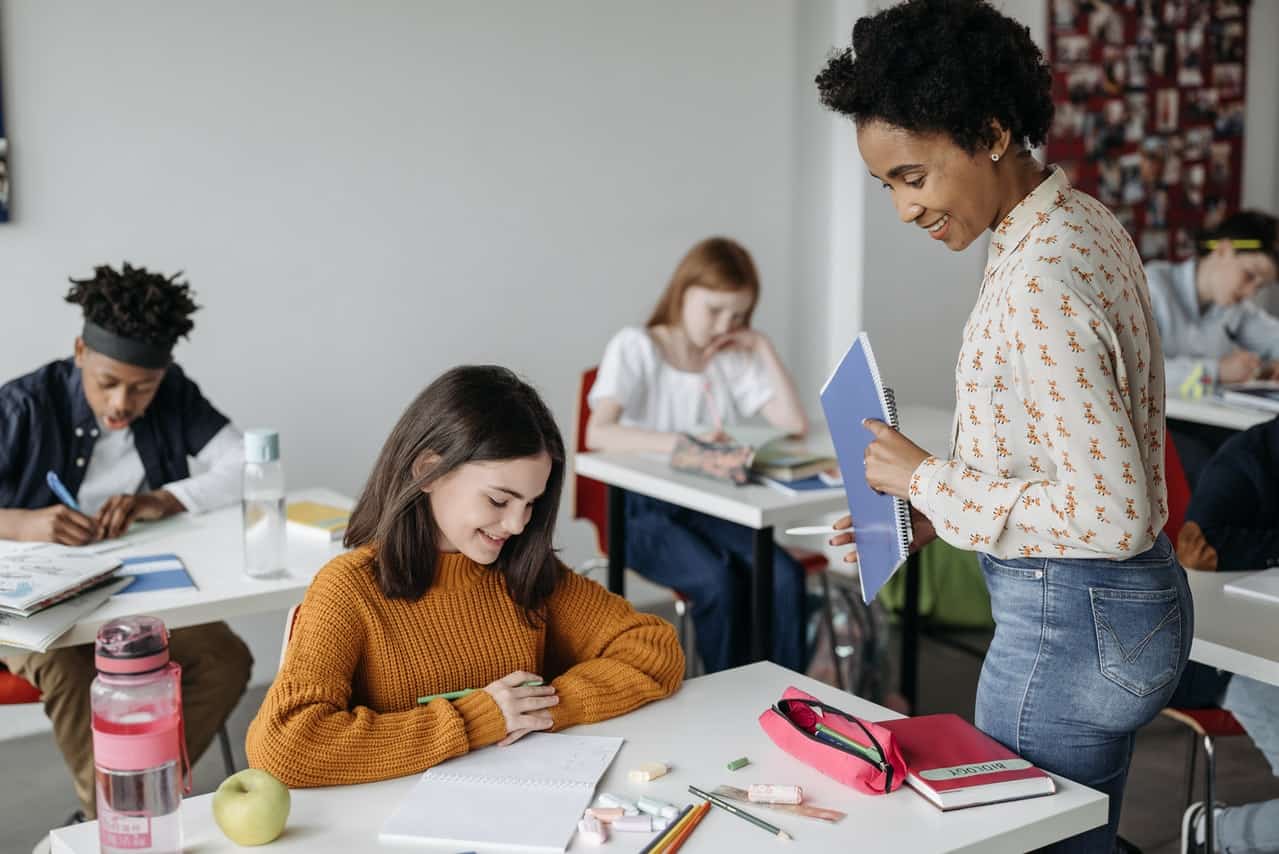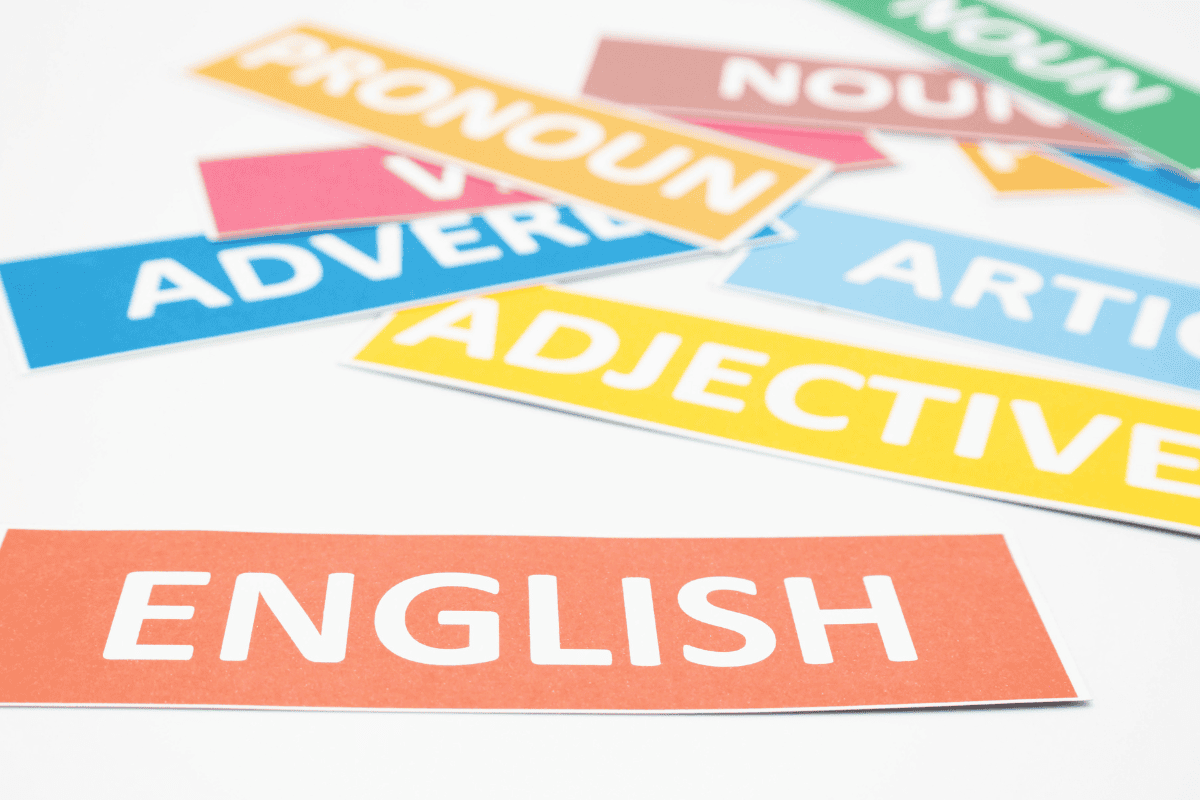English is a subject that requires students to build and develop their skills in writing and communicating effectively. Now, like all skills, practice is the key to getting better, especially in Year 9 English!
If you’d like to know more about what your child will specifically learn this year, we’ve put together this handy guide to make it easier to understand the various things your child will pick up in class.
So let’s begin!
What do students learn in the Year 9 Australian English Curriculum?
Assessment Types in Year 9 English
Year 9 English Resources
Looking for English guides for other year groups?
If you have a child in a different year group to Year 9, we’ve also got English guides for them! Have a look at our guides for the various year groups:
Year 1 | Year 2 | Year 3 | Year 4 | Year 5 | Year 6 | Year 7 | Year 8 | Year 10
What do students learn in the Year 9 Australian English Curriculum?
Year 9 English covers a variety of key skills and concepts that will be built upon in senior english.
If you are a parent that would like to know the ins and outs of your child’s Year 9 english curriculum, or a Year 9 student who is curious to know what you will be learning in the following year, you have come to the right place!
This guide will give you a detailed outline of all the learning areas in the Year 9 English curriculum, including things Year 9 students will learn, how these can be applied outside of school and the standards that Year 9 students will reach by the end of the year.
Although these things may vary between schools based on teachers’ preferences, this article should give you a good idea of what a year 9 student will learn over the next year.
The Year 9 English curriculum has 3 key components that tap into key English skills.
These broad components are:
- Language
- Literature
- Literacy
These learning areas are important to enhance students’ communication, analysis, reading, understanding, and creating skills.
Speaking of curriculums… have you heard yet? The Years 7-10 Maths is changing in major ways from 2024 onwards!
Now, let’s take a deep dive into each component!
Language
This is a super important component for all English levels, and really, is the foundation for effective and fluent written and verbal communication. A sophisticated use of language will involve using proper vocabulary, sentence structure, and ensuring that the phrasing of sentences have a flow to them.
The subtopics covered in ‘Language’ are as follows:
Language variation and change
This topic has two main subtopics that cover some basic historical and grammatical knowledge. A Year 9 student will develop an understanding that language is ever changing.
This will be understood through a study of changing grammar through time, an example of this being from archaic uses of ‘thee’ to more modern words such as ‘you’. Students will also briefly explore concepts from ‘Globish’ English to get a better understanding of just how much the English language has evolved in the past years.
Language for interaction
This topic features a more practical application of English, in that students are to develop an understanding that language is what allows for the creation of interpersonal connections.
Students will discuss a variety of literary techniques in lessons on evaluative language, and will touch upon how culture alters the use of language and how one interacts with different communities. The literary techniques that students may cover include allusion, evocative language, metaphors, and similes among others.
Text structure and organisation
This subtopic begins to take a deep dive into the writing process itself, introducing students to new and innovative ways of writing texts and using language and form to shape meaning. Students will experiment with different writing styles and narrative voices whilst comparing and contrasting the use of different styles in various texts.
Students will also learn how to develop arguments in persuasive writing with the proper argument structure and language.
Expressing and developing ideas
This topic allows students to go into an in-depth analysis of the forms, features, and development of language used in other texts that allows for the creation of meaning. Through this, students gain skills in creating and developing their own ideas and effectively expressing these ideas.
Literature
This component delves into a study of various types of literature, picking apart elements such as context, style and meaning. These concepts allow students to develop an understanding of not only how texts are written, but how they are highly influenced by the context of their time — giving insight into how authors come up with such elaborate and engaging texts.
Such knowledge can then be extended to students’ own writing, where they will have practice in coming up with their own unique texts.
The subtopics covered in ‘Literature’ are as follows:
Literature and context
This topic delves into the different representations of people and culture available in different texts and reflects how cultural and social values can influence the content of different texts.
Responding to literature
This topic introduces students to persuasive and responsive writing in that they are able to gain skills on how to properly critique and analyse literature using their own personal understanding.
Examining literature
Yet again, students exercise the skill of analysis, in that they will be exposed to a whole range of concepts and texts which will require critical analysis. Through this, Year 9 students will continue to develop analysis skills which are at the centre of senior essay writing.
Creating literature
Students are given the opportunity to exercise their own writing skills and will write in a variety of forms which can include hybrid texts such as parodies and appropriations.
Literacy
This concept, similar to the previous one, further develops students’ skills in understanding how texts are created, how one can analyse and dissect the meaning of texts, and how one can transfer these skills to their own writing.
The subtopics covered in ‘Literacy’ are as follows:
Texts in context
This topic develops from previous topics in that it discusses how the construction and interpretation of texts are greatly influenced by society and culture.
Interacting with others
Students will practice not only their written communication, but delve into the world of verbal communication too, in that they may be required to complete tasks that involve presentation and speaking. Valuable skills such as persuasive, confident speaking will be gained among others.
Interpreting, analysing, evaluating
In this topic, students will further enhance their critical thinking abilities as they develop their analytical skills whilst analysing a wide variety of texts.
Creating texts
In this topic, students will further develop their writing skills, practising to write in styles including persuasive, informative and creative styles. This will build the foundation for a confident start to senior english.
Assessment Types in Year 9 English
Over the course of the year, Year 9 students will practise writing a variety of text types which include:
- Creative writing pieces
- Persuasives
- Analytical pieces
- Discursives
These may vary across schools; however, your child will be exposed to all of these texts over the course of the year. Here’s an idea of the texts and the standards to which your child will be writing:
Still not sure how How to Study for English in Year 9? Check out our ultimate guide here!
Year 9 English Resources
Searching for additional resources for your child in Year 9? We’ve got a range of useful ones below!
Reading and Viewing List
Unsure of which books or media are suited for your child? Not to worry, as we’ve put together a list of various fiction, picture books and graphic novels, poetry, film and non-fiction texts that are recommended by NESA.
Some of these texts will be studied in class, but others you might want to encourage your child to read or view independently. Browse through the list below:
The Ultimate Year 9 Recommended Reading List
NAPLAN
Your child will be sitting the NAPLAN for the very last time. As per usual, they will be assessed on their literacy skills and other aspects related to English.
You can learn more about the Year 9 NAPLAN with our various resources below:
The Ultimate Guide To The Year 9 NAPLAN
How to Get a Band 8 in Year 9 NAPLAN Reading
How to Get a Band 8 in Year 9 NAPLAN Writing
How to get a Band 8 in Year 9 NAPLAN Language Conventions
Essay Writing
Essays can seem overwhelming and daunting, especially if it’s your child’s first time ever writing one. But they don’t need to be!
Our guide below breaks down a simple structure that students can follow and includes numerous tips and tricks to writing a cohesive essay. Check it out:
How to Write an English Essay in Years 9 and 10
And that’s it for our guide to Year 9 English! If you want to check out the full course, head over to the curriculum website here!
We wish you the best of luck for your studies, and are super excited for you to engage with the course!
Looking for some extra help for your child with Year 9 English?
We have an incredible team of English tutors and mentors!
We offer tutoring and mentoring for students in Years K-12 in a variety of subjects, with personalised lessons conducted one-on-one in your home or at one of our state of the art campuses in Hornsby or the Hills! Find your personalised tutor in Parramatta, or your favourite tutor in Penrith!
We’ve supported over 8,000 students over the last 11 years, and on average our students score mark improvements of over 20%!
To find out more and get started with an inspirational English tutor and mentor, get in touch today or give us a ring on 1300 267 888!
Yasmin Hasan is a current first year psychology student at UNSW. She loves making art, playing piano or reading in her spare time. She graduated from high school in 2021 so her memories of her own high school experience are still quite fresh. She would love to use her own experiences to help other students build their confidence and improve in their academics!







